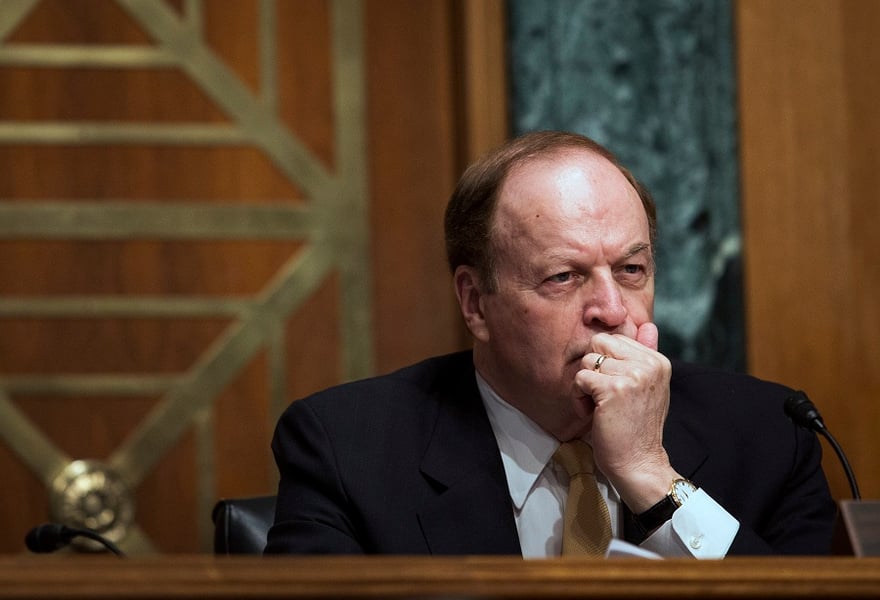After seeking to win support from Democrats for legislation sponsored by Sen. Richard Shelby, R.-Ala., for easing Dodd-Frank rules, Republicans are considering adding their measure to a government-spending bill.
Republicans this week may try a new strategy for easing Dodd-Frank Act rules.
After seeking for months to win support from Democrats for legislation sponsored by Senator Richard Shelby that narrows the reach of the law, Republicans are considering adding their measure to a government spending bill, according to three people with knowledge of the matter who asked not to be named because the deliberations are private.
The move could further anger Democrats, who have argued that the legislation would roll back essential taxpayer protections put in place five years ago to prevent a repeat of the 2008 financial crisis. Democrats including Senator Elizabeth Warren of Massachusetts slammed Republicans and bank lobbyists last year after they included an easing of derivatives rules in a spending bill.
Mr. Shelby, the Republican chairman of the banking panel, said on Tuesday that the financial legislation would help soften rules for regional and mid-size lenders.
“Dodd-Frank, I believe, imposed an arbitrary $50 billion asset threshold for determining which banks are systemically important, placing Main Street and regional banks in the same category of regulation as Wall Street banks,” Mr. Shelby said in a speech Tuesday at the Heritage Foundation.
“It's early, don't give up yet,” Mr. Shelby said referring to the progress of his legislation.
SUNTRUST, PNC
Stephen Worley, a spokesman for the Senate appropriations committee, declined to comment. The appropriations panel has scheduled hearings on a financial spending bill for Wednesday and Thursday.
Mr. Shelby's legislation could free SunTrust Banks Inc., U.S. Bancorp, PNC Financial Services Group Inc. and other banks from Dodd-Frank's stiff supervision and capital requirements. The bill also has sought to toughen oversight of the Federal Reserve and impose new requirements on the Financial Stability Oversight Council responsible for designating firms that pose threats to the broader financial system.
Senator Sherrod Brown, the top Democrat on the banking committee, has called the Republican bill “a one-sided wish list” that isn't written in a way that can win bipartisan support or an eventual signature from the president.
Treasury Secretary Jacob J. Lew on Monday said that the administration would oppose efforts to remove Dodd-Frank regulations, especially through spending bills.
“This tactic of using riders on must-pass legislation to chip away at crucial financial reforms is unacceptable,” Mr. Lew said.







